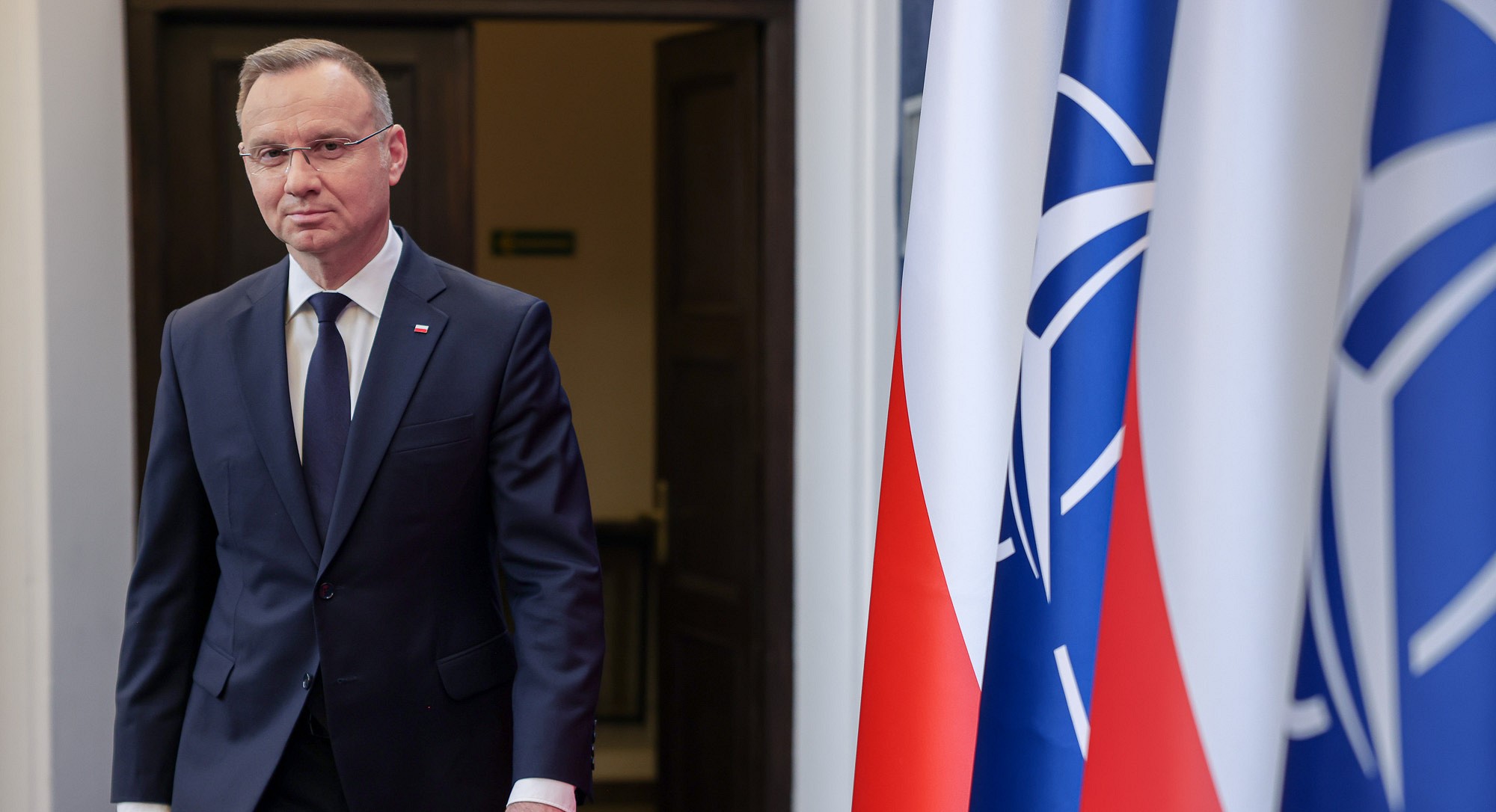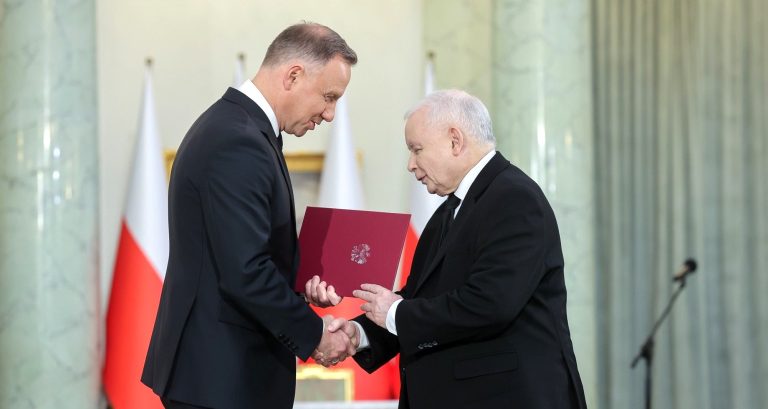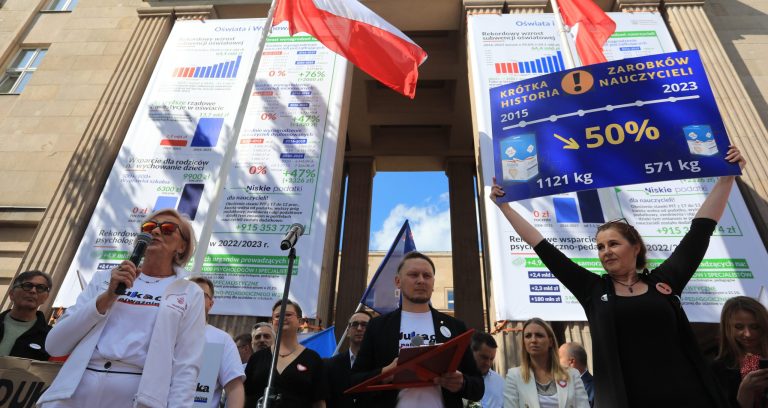President vetoes Polish government’s move to abolish predecessor’s Russian influence commission

President Andrzej Duda has vetoed a bill proposed by the ruling coalition that would have abolished a commission established by the former ruling Law and Justice (PiS) government to investigate Russian influence in Poland.
The commission was widely seen as an attempt by PiS to target the then-opposition ahead of last year’s parliamentary elections. Both the US government and the European Commission expressed concern that it could be used to undermine democracy and the rule of law.
In November, the commission issued a report recommending that leading opposition figures – including incoming Prime Minister Donald Tusk – not be allowed to hold public office due to concerns over their actions when they were previously in power.
A commission created by the outgoing government to investigate Russian influence has recommended @donaldtusk, the likely next PM, not hold positions responsible for state security.
Tusk dismissed the commission’s report as a politically motivated attack https://t.co/YWfMtMS7GK
— Notes from Poland 🇵🇱 (@notesfrompoland) November 29, 2023
Later the same day, Tusk’s new ruling coalition dismissed all members of the commission. Last month, it passed a bill abolishing the commission entirely.
However, on Friday, Duda’s chancellery released a brief statement saying that the president had “refused to sign” the legislation and had sent it back to parliament. A presidential veto can be overturned by a three fifths majority in parliament, but the government does not have enough MPs to do this.
No information was provided as to the reasons behind the veto. However, Duda is a PiS ally who has often been at loggerheads with Tusk’s government. The president last year signed the bill creating the Russian influence commission into law. Two of his advisors were made members of the body.
Brawo Pan Prezydent! @AndrzejDuda
Czy w związku z tym – czy @donaldtusk i #Stróżyk mieli prawo odtajnić korespondencję Komisji (słynne rzekome „szukanie haków przez Cenckiewicza”) która formalnie istnieje lecz jest nieobsadzona? Czy jakiekolwiek następstwo prawne w tym wypadku… https://t.co/2h2jTG3c2L
— Sławomir Cenckiewicz (@Cenckiewicz) August 16, 2024
Duda’s veto was today welcomed by Sławomir Cenckiewicz, the historian who had been chairman of the commission before all its members were dismissed in November. “Bravo, Mr President!” he wrote on X.
The government had not commented on Duda’s veto or its further plans relating to the commission at the time of writing. In May this year, Tusk established his own separate commission tasked with investigating Russian and Belarusian influence in Poland in the period 2004 to 2024.
The prime minister denied that his body would be used for political purposes against the opposition. However, he specifically named PiS deputy leader and former defence minister Antoni Macierewicz as a person of interest in such an investigation.
PM @donaldtusk has established a commission to investigate Russian influence in Poland.
But opposition leader Jarosław Kaczyński claims it is Tusk himself who has previously „cooperated with Russia against Poland” and should be the „main suspect” https://t.co/yEatUDor3v
— Notes from Poland 🇵🇱 (@notesfrompoland) May 22, 2024
Notes from Poland is run by a small editorial team and published by an independent, non-profit foundation that is funded through donations from our readers. We cannot do what we do without your support.
Main image credit: Marek Borawski/KPRP

Daniel Tilles is editor-in-chief of Notes from Poland. He has written on Polish affairs for a wide range of publications, including Foreign Policy, POLITICO Europe, EUobserver and Dziennik Gazeta Prawna.






